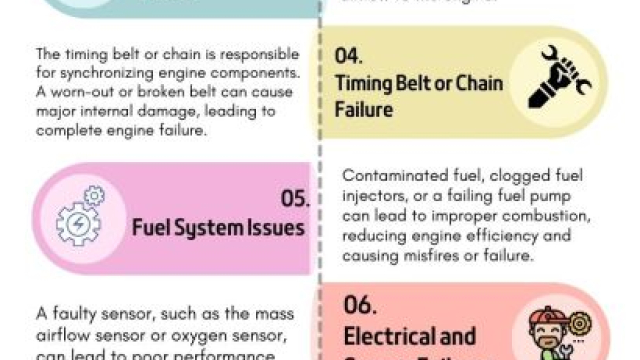In the ever-evolving landscape of education technology, Artificial Intelligence (AI) has found its way into assessment processes, sparking discussions about the advantages and drawbacks of AI-graded assignments. As educators explore innovative ways to streamline evaluation processes and provide timely feedback, AI-graded assignments have emerged as a potential solution. This article delves into the boons and banes of utilizing AI for grading assignments, examining the efficiency gains, concerns surrounding bias and subjectivity, the technology empowering AI grading, real-world applications, ethical considerations, and future trends in this educational paradigm shift.
Definition of AI-Graded Assignments
AI-graded assignments involve the use of Artificial Intelligence to assess and evaluate student work, providing automated grading and feedback. This technology is often employed for various types of assignments, ranging from multiple-choice questions to more complex tasks like essays and written responses. The integration of AI in grading assignments aims to enhance efficiency, consistency, and promptness in the assessment process.
Understanding AI-Graded Assignments
AI-graded assignments represent a significant departure from traditional grading methods, leveraging AI algorithms to assess and evaluate student work. These assignments span a wide range of formats, from multiple-choice questions to more complex tasks like essays and written responses. The fundamental goal of AI grading is to streamline the assessment process, providing educators with efficient grading solutions while offering students timely feedback on their performance.Advantages of AI-Graded Assignments
Efficiency and Prompt Feedback:
One of the most evident benefits of AI-graded assignments is the speed at which assessments are conducted and feedback is delivered. Unlike manual grading, AI algorithms can process assignments rapidly, allowing educators to provide timely feedback to students. This swift turnaround time fosters a more dynamic learning environment, enabling students to address their weaknesses promptly and build on their strengths.
Scalability: AI excels in handling large volumes of assignments simultaneously, offering a scalable solution to the challenges posed by an increasing student population. This scalability ensures that assessments are conducted consistently across a large cohort of students without compromising the quality of feedback or evaluation.
The Growing Role of AI in Education
As education embraces digital transformation, AI has become a key player in reshaping various aspects of the learning experience. From personalized learning platforms to intelligent tutoring systems, AI is increasingly permeating educational settings. Grading assignments, a time-consuming and often subjective task, is no exception to this technological revolution. The growing role of AI in education prompts a closer examination of the impact it has on the assessment process and the overall learning dynamic.
Significance of Examining the Pros and Cons
The adoption of AI-graded assignments raises significant questions about the implications for both educators and students. While the promise of streamlined assessment processes and rapid feedback is enticing, it is crucial to scrutinize potential drawbacks such as the lack of subjective understanding, algorithmic bias, and the broader impact on the dynamics of teaching and learning. This examination is imperative to ensure that the integration of AI aligns with educational values, fairness, and the overarching goals of fostering student growth and understanding.
Advantages of AI-Graded Assignments
Rapid Assessment and Feedback: One of the primary advantages of AI-graded assignments is the efficiency in assessment and the prompt delivery of feedback. Unlike traditional manual grading, AI can process assignments at a much faster rate, allowing educators to provide timely feedback to students. This rapid turnaround contributes to a more dynamic learning environment where students can address their weaknesses and build on their strengths promptly.
Handling Large Volumes of Assignments: AI excels in handling large volumes of assignments simultaneously. In scenarios where educators may be overwhelmed by the sheer quantity of student work, AI offers a scalable solution. This efficiency ensures that assessments are conducted consistently across a large student population without compromising the quality of feedback.
Consistency in Evaluation
Eliminating Human Grading Biases: Human grading is susceptible to biases, both conscious and unconscious. AI-graded assignments aim to eliminate such biases by applying standardized assessment criteria consistently. This ensures that each student’s work is evaluated objectively, contributing to a fair and impartial grading process.
Ensuring Standardized Assessment Criteria: AI follows a predefined set of criteria for assessment, ensuring standardized evaluation across all assignments. This standardization is particularly valuable in situations where multiple educators may be involved in grading, promoting consistency in assessment practices and outcomes.
Instant Feedback for Students
Facilitating Learning through Timely Input: AI-graded assignments facilitate a more immediate feedback loop for students. Timely feedback is crucial for the learning process, allowing students to reflect on their performance, understand areas of improvement, and make necessary adjustments. The instant feedback provided by AI contributes to a more iterative and responsive approach to learning.
Encouraging Continuous Improvement: The quick turnaround in feedback encourages a culture of continuous improvement among students. Knowing their strengths and weaknesses promptly, students can focus on refining their skills and addressing knowledge gaps. This iterative feedback loop aligns with principles of formative assessment, where learning is an ongoing and evolving process.
The Disadvantages and Concerns
AI encounters difficulties when assessing subjective assignments that demand a nuanced understanding of context, creativity, and originality. Tasks like essay writing, artistic projects, or open-ended questions may surpass AI’s capacity to comprehend the intricacies of human expression and interpretation. Consequently, it struggles to grasp the subtleties inherent in these tasks.
For instance, essay grading poses a considerable challenge.AI performs exceptionally well in assessing objective criteria like grammar and structure but struggles when it comes to evaluating subjective elements such as style, tone, and the depth of a writer’s argument. Without a human touch, it may overlook the subtleties that make an essay truly exceptional.
The limitation in evaluating creative elements is a notable concern in the context of AI-graded assignments.
Potential for Algorithmic Bias
Addressing Issues of Fairness and Equity: Algorithmic bias is a critical concern in AI-graded assignments.. Addressing these issues is crucial to ensure that students from diverse backgrounds are assessed fairly and without prejudice.
Mitigating bias requires ongoing efforts to refine AI grading algorithms and address any biases detected in the system. This involves diversifying training datasets, implementing fairness-aware machine learning techniques, and regularly auditing the algorithms for unintended biases. The commitment to mitigating bias is essential for upholding principles of equity in education.
Impact on Teaching and Learning Dynamics
Balancing Technology with Personalized Instruction: The adoption of AI-graded assignments prompts a .
Preserving the Role of Educators in Assessment: Educators play a pivotal role in understanding the unique strengths. AI-graded assignments should be integrated into educational practices in a way that enhances. Preserving the educator’s role in assessment ensures that the learning experience remains holistic and responsive to individual needs.




